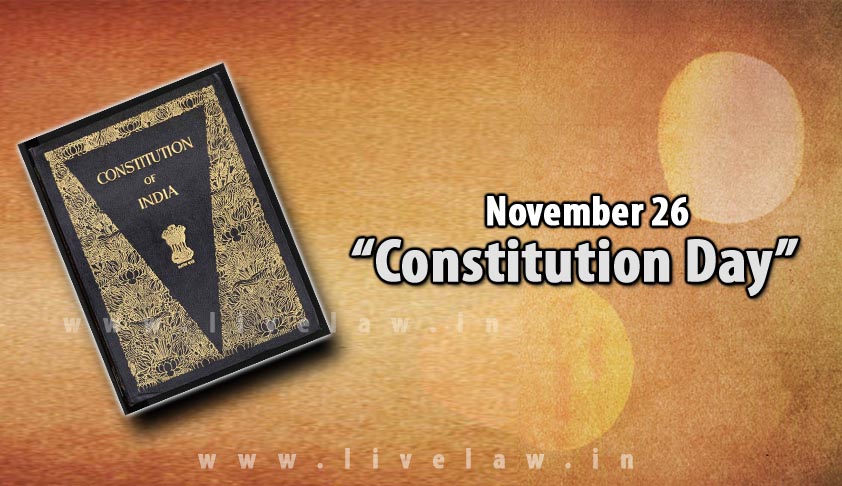National Law Day To Be Celebrated Jointly By Law Commission & NITI Aayog On Nov 25, 26
aasavri Rai
24 Nov 2017 9:29 PM IST

Next Story
24 Nov 2017 9:29 PM IST
The National Law Day-2017 will be celebrated jointly by the Law Commission of India and NITI Aayog on Saturday and Sunday at Vigyan Bhawan in New Delhi. President Ram Nath Kovind will inaugurate the event while Prime Minister Narendra Modi will deliver the valedictory address. The significance of the event lies in the fact that the Constitution of India was adopted by the Constituent Assembly...
